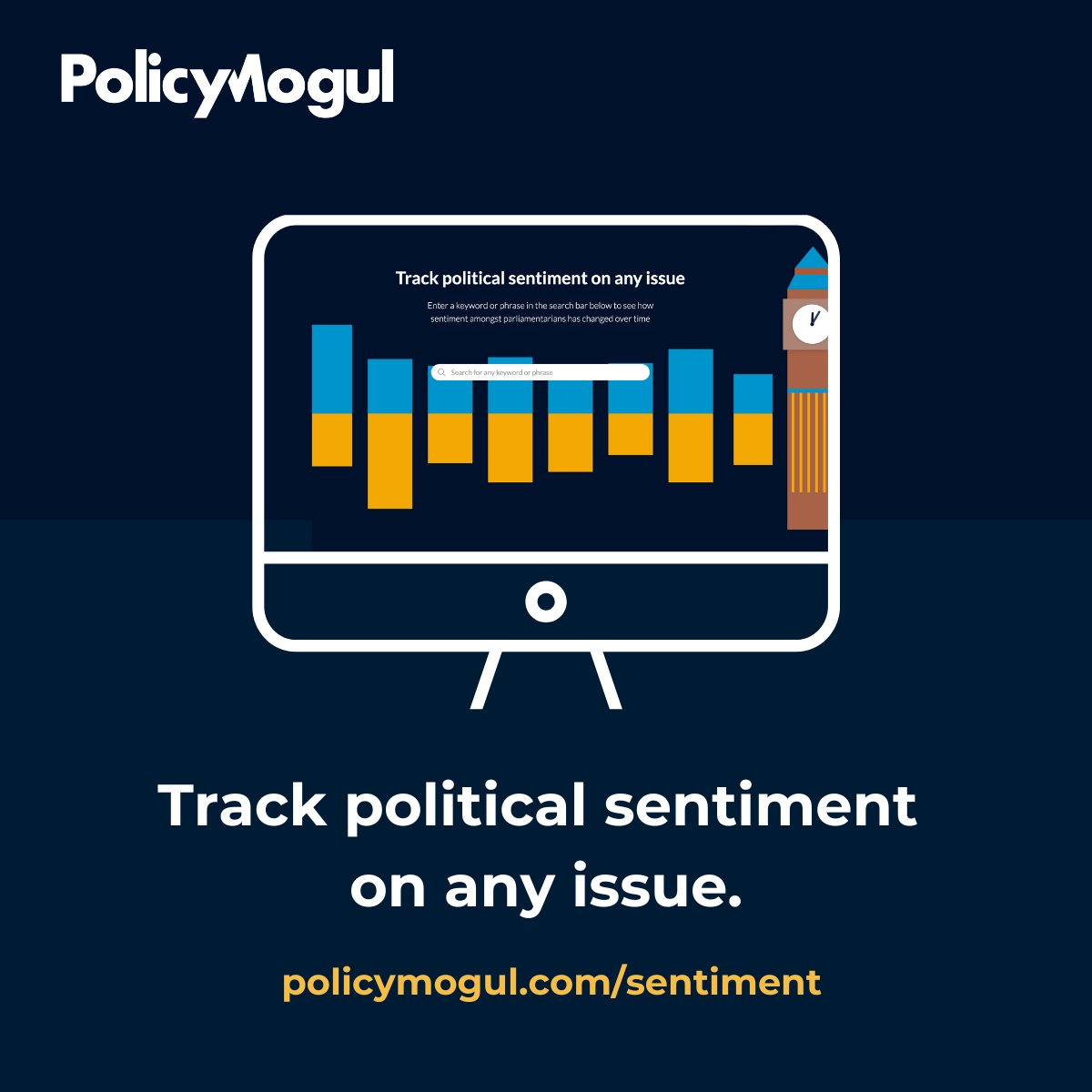A Study Of Canadian Political Sentiment: Anti-Trump Views Across Provinces

Table of Contents
Regional Variations in Anti-Trump Sentiment
While widespread disapproval of Donald Trump existed across Canada, the intensity of anti-Trump sentiment varied significantly between regions. Analyzing Canadian opinion on Trump at a provincial level reveals a nuanced understanding of this political phenomenon.
Atlantic Canada's Response
The Atlantic provinces – Newfoundland and Labrador, Nova Scotia, Prince Edward Island, and New Brunswick – generally exhibited high levels of anti-Trump sentiment.
- Several polls conducted during Trump's presidency showed consistently negative approval ratings in these provinces.
- Historical ties with the US, often characterized by close cultural and economic relationships, may have heightened sensitivity to Trump's policies impacting these established connections.
- News coverage focusing on Trump's policies perceived as detrimental to Atlantic Canadian industries likely fueled negative opinions.
Central Canada's Perspective (Ontario and Quebec)
Ontario and Quebec, the most populous provinces, also displayed predominantly negative views towards Trump. However, subtle differences emerged.
- Urban centers in both provinces tended to show stronger anti-Trump sentiment than rural areas, potentially reflecting varying media consumption patterns and political affiliations.
- Quebec, with its distinct cultural identity and historical relationship with the US, showed a possibly more pronounced rejection of Trump's policies, particularly those concerning trade and immigration.
- Surveys from organizations like Léger Marketing and Angus Reid Institute consistently reflected this pattern of negative sentiment in both provinces, with nuances based on urban-rural divides and political party affiliation.
Western Canada's Attitudes
Western Canada (Manitoba, Saskatchewan, Alberta, and British Columbia) presented a more complex picture. While anti-Trump sentiment was prevalent, it wasn't uniformly strong across all provinces.
- Alberta, with its strong ties to the US energy sector, might have experienced a more mixed response to Trump's policies, depending on the specific impacts on the oil and gas industry.
- British Columbia, generally more left-leaning, exhibited stronger anti-Trump views aligned with its progressive political climate.
- Economic relations with the US, coupled with the prevailing political ideologies in each province, played a crucial role in shaping public opinion. Specific policies, such as those impacting trade and the environment, further influenced the level of anti-Trump sentiment.
Underlying Factors Influencing Anti-Trump Sentiment
Several key factors contributed to the widespread anti-Trump sentiment in Canada. Understanding these factors is crucial for a complete understanding of Canadian Political Sentiment: Anti-Trump Views Across Provinces.
Political Ideology and Party Affiliation
A strong correlation existed between political ideology and anti-Trump sentiment.
- Supporters of the Liberal Party consistently demonstrated higher levels of disapproval towards Trump than supporters of the Conservative Party.
- This alignment wasn't absolute, however, with some Conservatives also expressing negative views on specific Trump policies. Analyzing polling data reveals these nuanced relationships.
Economic Considerations
Trump's economic policies, particularly trade disputes and tariffs, significantly impacted Canadian public opinion.
- The renegotiation of NAFTA (now USMCA) and the imposition of tariffs on Canadian goods led to considerable economic uncertainty and fueled negative sentiment towards the Trump administration.
- Industries heavily reliant on trade with the US, such as the automotive and agricultural sectors, were particularly affected, leading to increased opposition to Trump's policies.
Social and Cultural Values
Canadian social and cultural values played a crucial role in shaping reactions to Trump's rhetoric and policies.
- Trump's stance on issues like immigration, climate change, and international relations clashed with many Canadians' values, contributing to the negative sentiment.
- His rhetoric often perceived as divisive and discriminatory further exacerbated these negative feelings.
Methodology and Data Sources
This analysis relies on data from several sources to provide a comprehensive picture of Canadian political sentiment towards Trump.
- Reputable polling organizations like Angus Reid Institute and Léger Marketing provided crucial data on public opinion.
- News archives from major Canadian outlets offered insights into media coverage and public discourse.
- Social media analysis, while presenting challenges regarding representativeness, offered supplementary data reflecting public sentiment.
Limitations include the inherent biases in polling methodologies and potential limitations in accurately capturing the opinions of all segments of the Canadian population.
Conclusion
Our study of Canadian Political Sentiment: Anti-Trump Views Across Provinces reveals a strong, yet regionally nuanced, anti-Trump sentiment. While widespread disapproval existed across Canada, regional variations emerged due to factors like economic ties with the US, historical relations, and prevailing political ideologies. The influence of Trump's economic policies and his approach to social and cultural issues also played a significant role. Understanding the nuances of Canadian political sentiment towards figures like Donald Trump requires ongoing analysis. Continue exploring this complex topic by researching additional polling data and engaging in thoughtful discussions about Canadian political dynamics.

Featured Posts
-
 Con Alberto Ardila Olivares La Garantia Del Exito Esta Asegurada
Apr 27, 2025
Con Alberto Ardila Olivares La Garantia Del Exito Esta Asegurada
Apr 27, 2025 -
 Charleston Tennis Pegula Claims Victory Against Collins
Apr 27, 2025
Charleston Tennis Pegula Claims Victory Against Collins
Apr 27, 2025 -
 Mc Cooks Local Jeweler A Helping Hand For Nfl Players In Need
Apr 27, 2025
Mc Cooks Local Jeweler A Helping Hand For Nfl Players In Need
Apr 27, 2025 -
 Ariana Grandes Swarovski Campaign A Dip Dyed Ponytail Debut
Apr 27, 2025
Ariana Grandes Swarovski Campaign A Dip Dyed Ponytail Debut
Apr 27, 2025 -
 Canadas Anti Trump Sentiment A Divided Nation
Apr 27, 2025
Canadas Anti Trump Sentiment A Divided Nation
Apr 27, 2025
Latest Posts
-
 Proposed Starbucks Raise Rejected By Union
Apr 28, 2025
Proposed Starbucks Raise Rejected By Union
Apr 28, 2025 -
 Starbucks Unions Rejection Of Companys Wage Guarantee
Apr 28, 2025
Starbucks Unions Rejection Of Companys Wage Guarantee
Apr 28, 2025 -
 Unionized Starbucks Employees Turn Down Companys Pay Raise Proposal
Apr 28, 2025
Unionized Starbucks Employees Turn Down Companys Pay Raise Proposal
Apr 28, 2025 -
 Pace Of Rent Increases Slows In Metro Vancouver Housing Costs Still High
Apr 28, 2025
Pace Of Rent Increases Slows In Metro Vancouver Housing Costs Still High
Apr 28, 2025 -
 The V Mware Price Shock At And T Highlights A 1 050 Increase From Broadcom
Apr 28, 2025
The V Mware Price Shock At And T Highlights A 1 050 Increase From Broadcom
Apr 28, 2025
